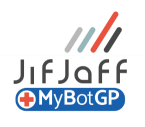As the healthcare landscape continues to evolve, the integration of automation tools in primary care holds immense potential for improving patient outcomes and streamlining processes. However, it is crucial to approach automation with a solid ethical foundation to ensure patient-centric care, privacy protection, and equitable healthcare delivery. In this blog post, we will explore the ethical guidelines outlined by the NHS for using automation tools in primary care, emphasising the importance of upholding patient welfare and promoting fairness throughout the automation journey.
-
Patient Safety and Quality of Care:
The foremost ethical consideration is the commitment to patient safety and delivering high-quality care. Automation tools should be designed, implemented, and continuously monitored to minimise errors, maintain clinical standards, and enhance patient safety. Rigorous risk assessments and safety evaluations should be conducted to mitigate potential harm and ensure the tools’ reliability and accuracy.
-
Data Protection and Privacy:
Automation tools must adhere to strict data protection and privacy regulations to safeguard patient information. Compliance with the General Data Protection Regulation (GDPR) and other relevant guidelines is paramount. Patient data should be securely stored, accessed only by authorised personnel, and handled strictly in accordance with consent and confidentiality requirements. Transparency regarding data usage and protection practices is crucial for maintaining patient trust.
-
Transparency and Explainability:
Automation systems should be transparent and explainable, allowing healthcare professionals to understand and explain how they operate and arrive at their outcomes. The tools’ inner workings, decision-making processes, and algorithms should be transparent and understandable. This transparency fosters trust, facilitates better communication between healthcare professionals and patients, and ensures accountability for the decisions made by the automation system.
-
Equity and Fairness:
Ethical considerations demand that automation tools in primary care be implemented with a focus on equity and fairness. They should not perpetuate biases or disparities in treatment, diagnosis, or resource allocation. Care must be taken to ensure that the tools benefit all patients regardless of their demographic characteristics or socioeconomic backgrounds. Regular audits and assessments should be conducted to identify and rectify unintended biases or inequities in the system’s outcomes.
-
Professional Judgment and Oversight:
Automation should be viewed as a supportive tool, augmenting healthcare professionals’ expertise and professional judgment rather than replacing them. Healthcare professionals’ clinical judgment and expertise should always be prioritised and integrated into decision-making. Professionals should retain the ability to override or modify recommendations made by the automation system when deemed necessary, ensuring that patient-specific needs and context are adequately considered.
-
Continuous Evaluation and Improvement:
Ethical guidelines emphasise the need for continuous evaluation and monitoring of automation tools in primary care. Regular assessments should be conducted to evaluate their impact, effectiveness, and adherence to ethical standards. Any concerns or issues identified should be promptly addressed, and necessary improvements should be made to ensure the tools align with ethical principles and guidelines. This ongoing evaluation process ensures that automation evolves in tandem with patient needs and ethical expectations.
Integrating automation tools in primary care can revolutionise healthcare delivery, improving patient outcomes and operational efficiency. However, upholding ethical guidelines is paramount to ensure patient safety, privacy protection, and equitable healthcare. By prioritising patient-centric care, transparency, equity, and continuous evaluation, healthcare organisations can confidently navigate the automation landscape, leveraging its benefits while safeguarding the values that underpin our healthcare system. Together, we can embrace automation ethically, fostering a future where technology empowers us to deliver better care to all.
JifJaff offers a fully managed and scalable solution for NHS Primary Care. Our team of experts handle all processes from implementation to maintenance, allowing you to focus on what matters most – your business! Our solution grows with you from practice, or large ICS with complex needs, we adapt to meet your requirements. With our comprehensive solutions, you can save time, reduce costs, and streamline your operations knowing you are fully supported.
